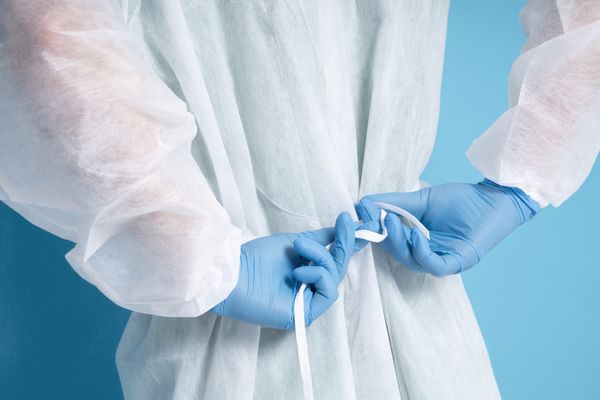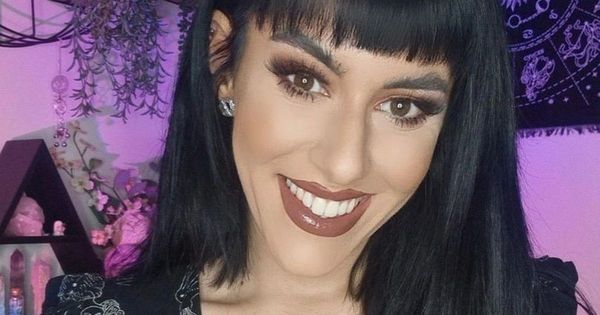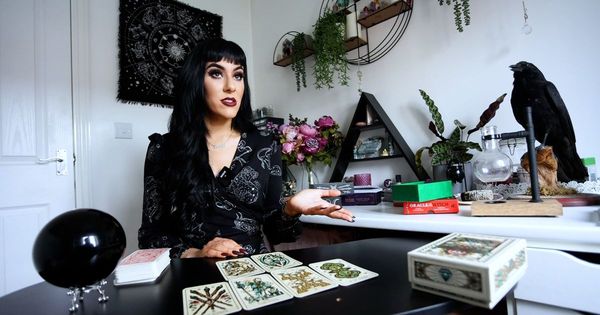
I got chills, like my fellow super fans, watching the recently released trailer for the second season of "And Just Like That."
Not just because of the return of Aiden, a great love from Carrie's past, but because I worked on the show over a month ago as a background extra and was curious if I could be seen.
On set at Veronika – a golden lit restaurant with stained glass, soaring ceilings, and views of the city – a white-haired crew guy had exclaimed, "Look what the cat dragged back in."
He was the only crew member I recognized from 20 years ago when I worked for four seasons as Kristin Davis stand-in on "Sex and the City" and had written about the toxic experiences for The Independent.
I wanted to start 2023 anew and heal from a job that had given me great joy and moments of shame. The set photographer and I walked towards each other and hugged.
"I'm transformed," I said, swinging my long curls around, hoping the crew had changed too. Hair and makeup had turned me into a glamourous, upscale 40-something.
The week before, I could barely get out of bed and scrolled on Instagram on my phone. The so-called post-pandemic life was supposed to be carefree. My young daughters had finally returned to school after two years of online learning hell and I was on track to earn a living as a writer instead of as a part-time Mommy and Me music teacher. But like so many of my mommy friends, I was still exhausted.
As I scrolled, I read the headline from Time Out: "New Yorkers! HBO's Sex and the City Spin-Off Needs You." I wasn't so sure "Sex and the City" needed me. Or even wanted me back.
The article on my screen stated that casting was looking for "all genders and ethnicities, to play age 20-50, chic, hip, fashionable partygoers." I hadn't attended a fancy party since before the pandemic. I still dreamed of being cool and beautiful. This was my chance to prove to myself and my kids that I still had it.
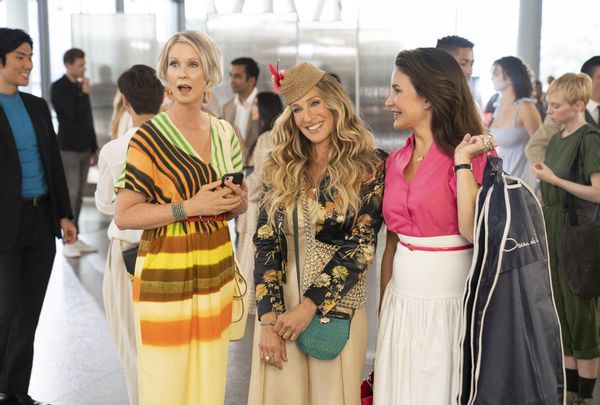
I'd finally get the acknowledgement from the "cheerleaders" (the stars of the show) that the frat-like behavior (that some called assault) from the "football team" (the crew and actor) was unacceptable and would never happen to another young woman again. I needed to go back to go forward. I sent in a recent snapshot and hoped for the best.
A week later, casting emailed and instructed me to show up at Park Avenue South at 5:48 a.m. along with 26 other extras. In big bold letters highlighted in yellow, I read: "PLEASE NOTE THE PRODUCTION SAFETY HOTLINE. To report potential misconduct, bullying, or harassment call the Compliance hotline."
That was new. I copied the info down on a Post-it note and put it in my bag for the next day.
Around the corner from the set in a church, the costume crew approved my wardrobe and an hour later walked us to Veronika Restaurant. I was glad to see there were more people of color and women working in the crew than years ago. Julie Rottenberg, a writer on "Sex and the City" and now on "And Just Like That," gave me a big hug. She must have known my story.
Sarah Jessica Parker took a seat at one of the dining room tables, her back to me, wearing a dark, form-fitting dress and white booties. Lights circled around her small body and golden hair. Grips lifted cables and makeup artists swirled around director Michael Patrick King. We were all there to tell a story that would last another generation.
I took it all in and breathed. This time, the crew didn't push me around. I had worked hard in my life and deserved this moment. I deserved to take in the light, to shine.
A crew person placed me at a table far from the lead table. I leaned back in my chair, hoping to catch Cynthia Nixon's eye. I even attempted a half wave, but she seemed not to see me. Kristin Davis soon joined them at the table, her face toward me. She locked eyes with SJP and not for a moment (not even for the entire time we shot a three-page scene about Aiden emailing Carrie about Valentine's Day) did she take her eyes off her friend and co-star. They laughed at each other's jokes. I was happy for them, that after all these years, they were bonded like sisters.
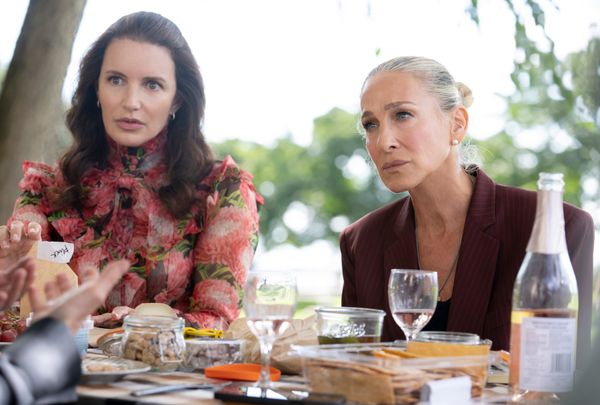
"I had a great time. Thanks," I said, handing over my voucher that stated I'd be paid $187 for 8 hours of work.
He signed it. Then looked at me and paused.
"I know a lot of background actors deal with some crap," he said sincerely.
Tears brimmed my eyes. Change had happened. The #MeToo Movement had given me the courage to speak up and expose the misogynistic crew, and here was the proof I had been seen. Not in the way I grew up dreaming about – doing a scene on camera – but I was finally respected for who I was – a woman making money in the arts. A job that had defined my 20s, no longer defined my 40s.
While it would've made my day if the stars said, "Hi," their response or acknowledgment didn't make or break me.
And just like that it was time for school pickups.
As I hugged my kids, I realized I'd always look back on my past, but I didn't have to redeem it anymore. I had a life that I could live with and was lucky for all the little things: Waking up in a warm bed, food in the fridge, cuddles from my children, and decaf coffee brought to me every morning by my husband. I was happy to be alive, no longer craving a family I thought I had found on TV sets or on the stage.
I told my kids about standing in the bright lights and knew I hadn't given up on my dreams. No longer an actor, my greatest role now was as wife and mother and storyteller. Kindness to others and letting others know they were seen and heard would be my way forward. I had loved and left "Sex and the City."
Rewatching the trailer, I took solace in Carrie Bradshaw's voiceover: "Some things are better left in the past, but maybe not everything."
